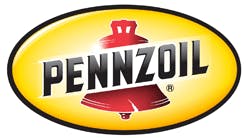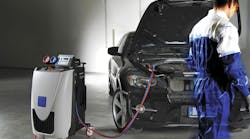- Pennzoil Platinum Full Synthetic Motor Oils - SAE 0W-20, SAE 5W-20, 5W-30 and SAE 10W-30
- Pennzoil Platinum High Mileage Full Synthetic Motor Oils SAE 0W-20, SAE 5W-20, SAE 5W-30 and SAE 10W-30
- Pennzoil Gold Motor Oils - SAE 0W-20, SAE 5W-20, SAE 5W-30 and SAE 10W-30
- Quaker State Ultimate Durability Full Synthetic Motor Oils - SAE 0W-20, SAE 5W-20, SAE 5W-30 and SAE 10W-30
- Quaker State Synthetic Blend Motor Oils - SAE 0W-20, SAE 5W-20 and SAE 5W-30
These motor oils are designed to combat the abnormal combustion phenomenon known as Low Speed Pre-Ignition (LSPI) found in some engines equipped with turbochargers and gasoline direct injection (GDI). These modern day engines are designed to work harder, while still providing improved fuel economy and engine performance.
As OEMs continue to strive for increased fuel economy and compliance with emission regulations, many have introduced downsized engines (with a displacement volume somewhere between one to two liters) that provide greater fuel economy under normal driving conditions while delivering higher power-density and torque. To achieve this, these downsized engines are often equipped with a turbocharger and direct fuel-injection technology. This type of engine technology is generally known as Turbocharged Gasoline Direct Injection, or TGDI.
The high pressures from turbocharging combined with direct fuel injection into the combustion chamber in these smaller TGDI engines makes them susceptible to LSPI. While the mechanism of LSPI is not yet fully understood, research has shown that motor oil properties may be a contributing factor. OEMs can mitigate LSPI by adjusting the engine operating conditions, but in doing so they inhibit some high efficiency engine operating conditions.
Motor oils can be reformulated to help prevent LSPI, and the Auto-Oil Advisory Panel, which is developing the ILSAC GF-6 standard, has commissioned a new testing method for LSPI. Amid growing concerns about LSPI among OEMs, the urgent need for a supplemental service category became evident. This new supplemental category, known as API SN PLUS, includes the testing protocol for API SN and a special test for LSPI.
Pennzoil and Quaker State motor oils are prepared to meet the API SN PLUS specifications on the designated first use date of May 1, 2018. Consumers will begin to see updated packaging to reflect the new donut designation starting on May 1, 2018.


